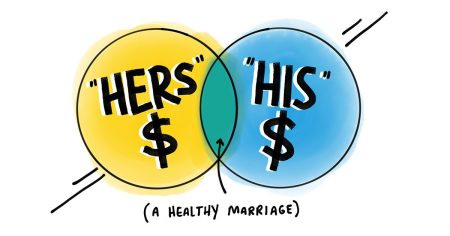Understanding your credit score is crucial for financial health, yet many misconceptions persist about what affects it and how it operates. These myths can lead to poor financial decisions and unnecessary stress. Let’s debunk some common credit score myths and provide factual information to help you navigate your financial journey with confidence.
Myth 1: Checking Your Credit Score Hurts It
One of the most pervasive myths is that checking your own credit score can negatively impact it. This is simply not true. When you check your own credit score, it is considered a “soft inquiry,” which does not affect your score. In fact, regularly monitoring your credit score is a good habit, allowing you to spot errors or signs of identity theft early.
Fact 1: Hard Inquiries Can Affect Your Credit Score
While checking your own credit score has no impact, “hard inquiries” can lower your score. Hard inquiries occur when lenders check your credit to make lending decisions. Each hard inquiry can reduce your score by a few points, but multiple hard inquiries in a short period can have a more significant impact. However, credit scoring models often group multiple inquiries for the same type of loan (e.g., mortgage, auto loan) within a short period as a single inquiry, understanding that consumers are likely rate shopping.
Myth 2: Closing Old Accounts Will Improve Your Credit Score
Many believe that closing old credit accounts will boost their credit score, but this can actually have the opposite effect. Closing a credit account reduces your available credit and can increase your credit utilization ratio, which is a key factor in your credit score. Additionally, the length of your credit history accounts for 15% of your score. By closing old accounts, you shorten your credit history, which can negatively impact your score.
Fact 2: Keeping Old Accounts Open Can Be Beneficial
Maintaining open, older credit accounts, even if you don’t use them regularly, can be beneficial. These accounts contribute to a longer credit history and a lower credit utilization ratio. If you’re concerned about the temptation to use these cards, consider storing them in a safe place rather than carrying them with you.
Myth 3: A High Income Equals a High Credit Score
Your income level is not included in your credit score calculation. Credit scores are determined by your credit behavior, such as payment history, amounts owed, length of credit history, new credit, and types of credit in use. While a higher income can make it easier to manage debt and pay bills on time, it does not directly impact your credit score.
Fact 3: Responsible Financial Behavior Leads to a Good Credit Score
Regardless of your income level, responsible financial behavior is key to maintaining a good credit score. This includes paying your bills on time, keeping your credit utilization ratio low, and avoiding unnecessary hard inquiries. By managing your finances wisely, you can build and maintain a strong credit score.
Myth 4: You Only Have One Credit Score
In reality, you have multiple credit scores. Different credit bureaus (Experian, TransUnion, and Equifax) and scoring models (FICO, VantageScore) calculate your credit score differently. The scores can vary based on the specific data each bureau has and the model used. It’s important to check your credit reports from all three bureaus to get a comprehensive view of your credit health.
Fact 4: Diverse Credit Reports and Scores Provide a Holistic View
Each credit bureau may have slightly different information about your credit history, leading to variations in your scores. By reviewing your reports from all three bureaus, you can identify discrepancies and ensure all information is accurate. This comprehensive approach helps you maintain a healthy credit profile.
Myth 5: Carrying a Balance on Your Credit Card Improves Your Score
Carrying a balance on your credit card does not improve your credit score. In fact, it can harm your score by increasing your credit utilization ratio, which is the amount of credit you’re using compared to your total available credit. High credit utilization can signal to lenders that you may be overextended financially.
Fact 5: Paying Off Your Balance in Full is Best
Paying off your credit card balance in full each month is the best practice for maintaining a good credit score. It demonstrates responsible credit management and keeps your credit utilization ratio low. If you can’t pay the full balance, aim to keep your utilization below 30% of your total credit limit.
To Sum It Up
Understanding the facts behind common credit score myths is essential for making informed financial decisions. Regularly monitoring your credit, keeping old accounts open, managing your credit utilization, and practicing responsible financial behavior are all key strategies for maintaining a healthy credit score. By debunking these myths, you can approach your financial future with confidence and clarity. Remember, your credit score is a reflection of your financial habits—make them count.
If you are struggling to pay off debt, ACCC may be able to help. Sign up for a free credit counseling session with us today.
Read the full article here










